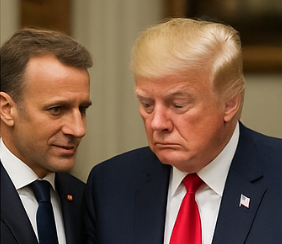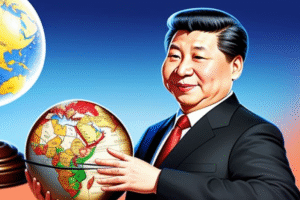$RUB $PLN #Geopolitics #Sanctions #NATO #Russia #Poland #DroneIncursion #Trump #FinancialMarkets #GlobalTensions #Diplomacy
What’s Next After Trump’s Response to Russia’s Drone Incursion on NATO Ally?
In the wake of heightened tensions following Russia’s unauthorized drone incursion into Poland, Western officials are rallying for intensified sanctions against Moscow. This situation marks a critical juncture in international relations, particularly concerning NATO’s eastern borders. The call for tougher sanctions underscores a collective Western strategy aimed at deterring further Russian aggression.
Understanding the Geopolitical Implications
The drone incursion, viewed as a grave breach of international law, has triggered a robust response from NATO allies. The incident not only challenges the sovereignty of Poland, a NATO member, but also tests the alliance’s resolve in upholding collective security. The geopolitical stakes are high, as any missteps could escalate into a broader conflict, potentially drawing in multiple world powers.
Economic Repercussions and Market Responses
As Western officials propose harsher sanctions, the potential economic implications are vast. Sanctions could disrupt global markets, affecting everything from energy supplies to international trade routes. Investors and policy makers alike are keenly observing these developments, gauging the possible impacts on global economic stability and market liquidity. For insights into how these geopolitical events influence market dynamics, visit our financial news section.
The Role of Former U.S. President Trump
Former U.S. President Donald Trump’s reaction to the incident has been notably swift, signaling a proactive stance that might influence current U.S. foreign policy. Trump’s approach, often characterized by a blend of assertiveness and unpredictability, could shape the international community’s strategy towards Russia. His comments have reignited debates on the effectiveness and direction of U.S. foreign policy in deterring aggression while maintaining global alliances.
Long-term Strategies and Solutions
Moving forward, it is crucial for NATO and its allies to craft a coherent long-term strategy that addresses the root causes of such provocations. This strategy should not only focus on immediate punitive measures like sanctions but also on strengthening diplomatic ties and enhancing military readiness. Additionally, fostering economic resilience and diversifying energy resources will be pivotal in mitigating the risks associated with geopolitical dependencies.
Conclusion: Navigating a Complex Global Landscape
As the situation evolves, the international community must balance assertiveness with diplomacy, ensuring that responses are calculated and proportionate to maintain global stability. The repercussions of these incidents are far-reaching, affecting not just the direct nations involved but also the broader international order. Maintaining a vigilant and unified approach will be essential in navigating these turbulent geopolitical waters.
In conclusion, the response by Western officials to Russia’s drone incursion into Poland is a testament to the ongoing challenges in global diplomacy and security. As tensions mount, the world watches closely, hoping for resolutions that lead to peace and stability rather than further escalation. For more detailed analysis on how geopolitical events affect financial markets, check out our stock market insights.











Comments are closed.